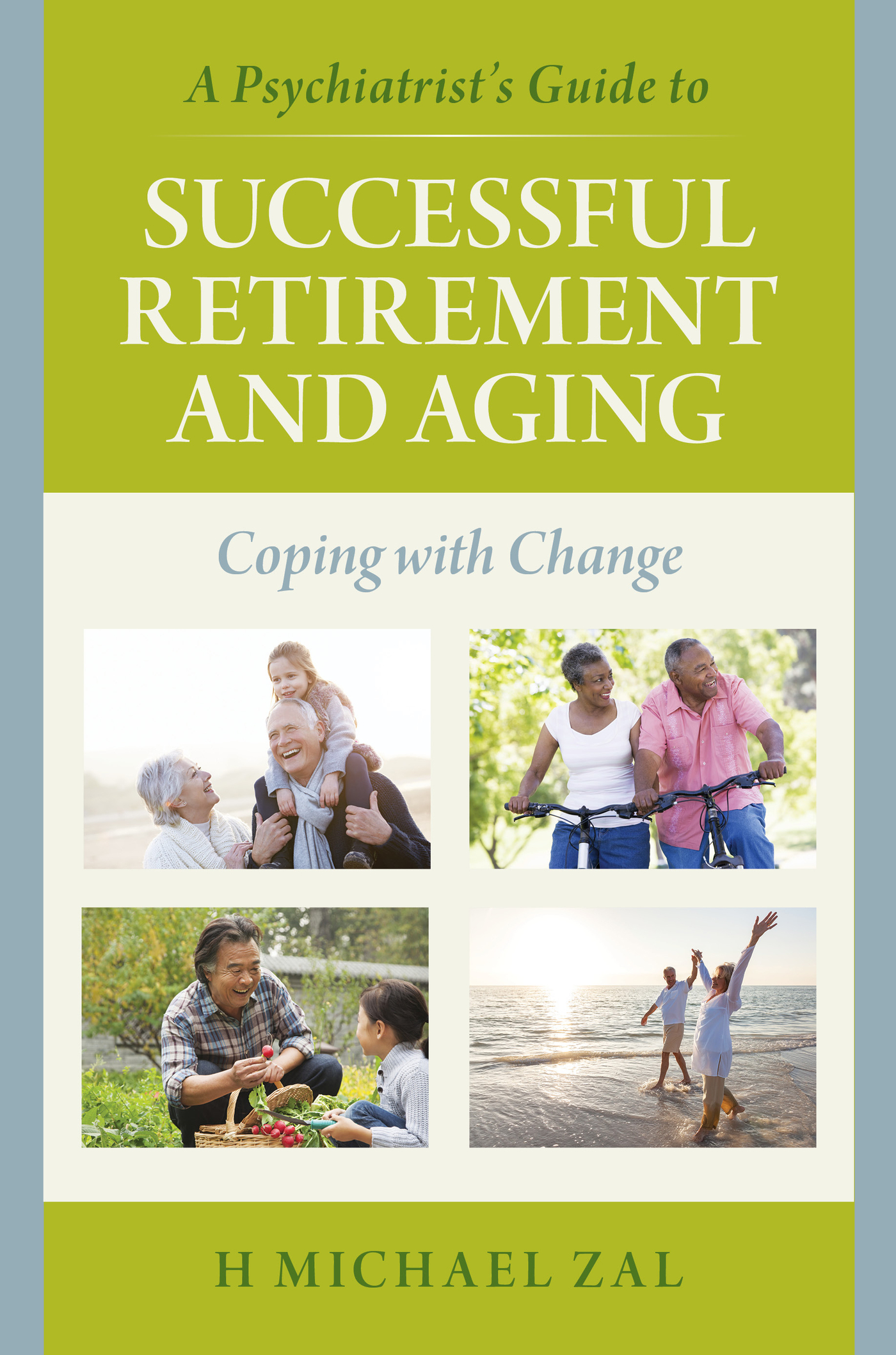A Psychiatrist's Guide to Successful Retirement
and Aging
A Psychiatrist's Guide to Successful Retirement
and Aging
Coping with Change
H Michael Zal
ROWMAN & LITTLEFIELD
Lanham Boulder New York London
Published by Rowman & Littlefield
A wholly owned subsidiary of the Rowman & Littlefield Publishing Group, Inc.
4501 Forbes Boulevard, Suite 200, Lanham, Maryland 20706
www.rowman.com
Unit A, Whitacre Mews, 26-34 Stannary Street, London SE11 4AB
Copyright 2016 by H Michael Zal
All rights reserved. No part of this book may be reproduced in any form or by any electronic or mechanical means, including information storage and retrieval systems, without written permission from the publisher, except by a reviewer who may quote passages in a review.
British Library Cataloguing in Publication Information Available
Library of Congress Cataloging-in-Publication Data
Names: Zal, H Michael, author.
Title: A psychiatrist's guide to successful retirement and aging : copying with change / H Michael Zal.
Description: Lanham, MD : Rowman & Littlefield, 2016. | Includes bibliographical references and index.
Identifiers: LCCN 2015039792 | ISBN 9781442251236 (cloth : alkaline paper) | ISBN 9781442251243 (electronic)
Subjects: LCSH: Older people--Psychology. | Retirement--Psychological aspects. | Aging--Psychological aspects. | Change (Psychology)
Classification: LCC BF724.8 .Z35 2015 | DDC 155.67--dc23 LC record available at http://lccn.loc.gov/2015039792
 TM The paper used in this publication meets the minimum requirements of American National Standard for Information Sciences Permanence of Paper for Printed Library Materials, ANSI/NISO Z39.48-1992.
TM The paper used in this publication meets the minimum requirements of American National Standard for Information Sciences Permanence of Paper for Printed Library Materials, ANSI/NISO Z39.48-1992.
Printed in the United States of America
A special thank you to Katherine E. Galluzzi, D.O., CMD, FACOFP dist., who is professor and chair of the Department of Geriatrics at the Philadelphia College of Osteopathic Medicine, for writing the foreword. She is also director of Comprehensive Care at PCOM, as well as being well known for her research, teaching, and writing on gerontology. Her words add a new dimension to my work.
This book is dedicated to Buba Paul,
my maternal grandmother
Authors Note
When I retired as a psychiatrist, I thought that I would miss the work, the activity, the intellectual stimulation, the educational aspects, and the ability to help others. I did miss these things. Particularly, during the first three months, I missed being a physician and a psychiatrist, which was such a big part of my identity for so many years. However, in reality, I did not miss having to deal with the tension, the constant need to learn about new medications, deal with billing issues, and patients, who thought that their problems were unique and overwhelming, but whose trials and tribulations really were quite average and repetitive. It was a pleasure not to have to deal with the long hours, the financial restrictions set by insurance companies, prior authorizations, and attorneys, who tried to influence your professional opinion.
It was delightful not to have to put up with medical records, patient reports, and time pressure. I no longer had to second guess patients, who dealt with their emotional pain with veiled or sometimes more overt suicidal threats. I no longer had to decide if a patient was indeed suicidal or just angry and wanting attention. It was wonderful not to have to work so hard to get patients to gain insight or accept outpatient psychiatric care and psychiatric hospitalization when necessary. People think that a psychiatrists job is easy. It is indeed very tiring and emotionally draining. Actively listening to patients and finding just the right response to be helpful to them is hard work.
Most of all, I found that what I really missed were the people. My patients, office personnel, and the other physicians in the suite had offered me companionship and personal interaction. There was always someone around to talk to briefly, joke with, discuss the ball game with, or share life events. Earlier in my career, I, as a solo practitioner with no office help, had been in the office alone all day. I had handled the isolation by being sure to go out of the office at least once a day and talk to others: other physicians, whom I knew in the building, hospital or nursing home staff, or even the restaurant personnel at lunch. The pharmaceutical representatives were knowledgeable and friendly. If all else failed, there was always the mailman. Part of the advantage of sharing office space with others during the last fourteen years was that I was not constantly by myself.
I gradually realized, however, that, most importantly, I missed my patients. During my work day, many of them, particularly those whom I saw once a week, every two weeks, or once a month had become professional friends. Many I knew over the course of several years. I had met their family members and children in the waiting room and during family consultations. In some cases, I ended up seeing a husband and wife, their parents, and sometimes even their older children for therapy or consultation. Several times during my career, I had three generations of the same family coming to see me, separately, for professional care. They were an integral part of my life, since they fulfilled many of my needs, such as providing company. Now, I missed the stimulation and I felt alone. This was the first time since first grade that I was in this position. During the first few months of retirement, the obvious gradually dawned on me. Although my wife and I had a good relationship and many friends outside of work, my patients had added a lot to my existence.
I now live in a fifty-five and older community of four hundred families, most of whom are retired or about to retire. The average age is about seventy years old. For the most part, the residents are vital, active individuals, who are enjoying a whole host of social activities and hobbies. They face their lives with gusto. They are forming new friendships, volunteering, traveling, and even starting new careers. Behind this beautiful faade is the reality that, as we retire and grow older, we also have to deal with physical illness and our own mortality. Life is both bitter and sweet. Many people who live in our community have pacemakers, neurological illnesses, and suffer from hypertension, arthritis, lung disease, and diabetes. Memory problems are common. Hearing aids are not unusual. Community gossip is often filled with reports that so and so is sick or in the hospital. People die. Often the front gates are left up so that visitors can enter to make a Shiva call or visit relatives after a wake.
However, for the most part, the people in this community deal with life proactively. They travel and try to stay active. They exercise and go to the gym. They attend planned social, cultural, educational, and charity events. I hope that you, like them, will enthusiastically embrace the possibilities of your new life as you retire and age. Express gratitude for what you have achieved and what you do have. Do not dwell on the negative aspects of aging. Take charge of your emotions, embrace change, and actively engage with your new life. If you follow through, you may find that retirement and aging offers many new and exciting opportunities and experiences.
Although long-awaited, adjusting to and coping with retirement is not always easy. It is helpful if you plan ahead, not just financially but also emotionally and behaviorally. This involves investing in new relationships to compensate for the loss of people from work. If married, your retirement will affect issues of time and space and perhaps a reworking of your respective roles. Your expectations of your spouse or significant other when you retire may also be problematic. You may have to consider current health and wellness issues as well as deciding where you will live. Unexpected events such as new health issues, divorce, or widowhood may complicate the situation. Your attitude throughout, particularly if it is positive, will also play a part in being successful. You may want to look at your spiritual or religious affiliations. They often can provide support and something to hold on to during the storm. This book will deal with these issues.
Next page
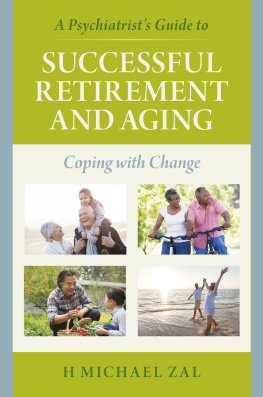
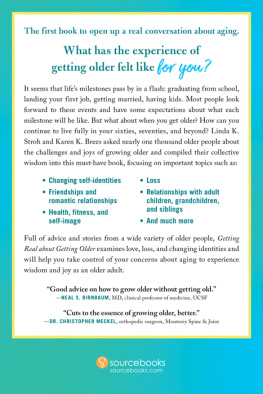
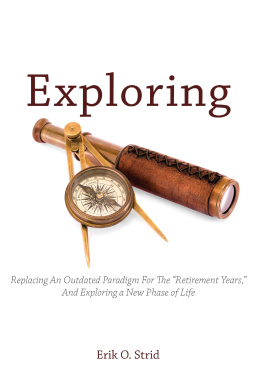

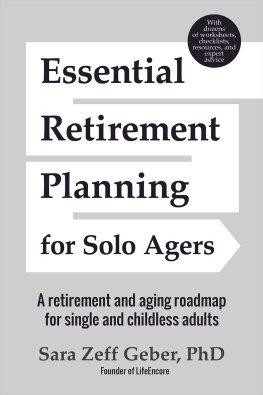

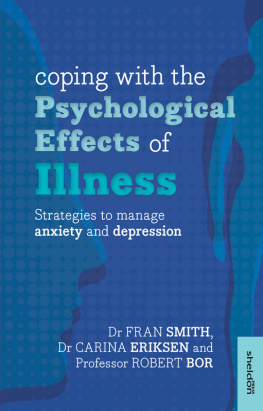
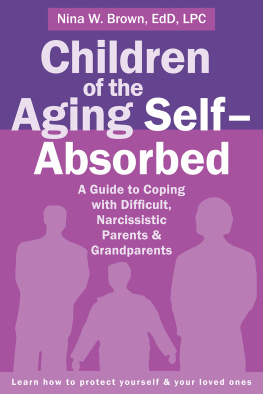
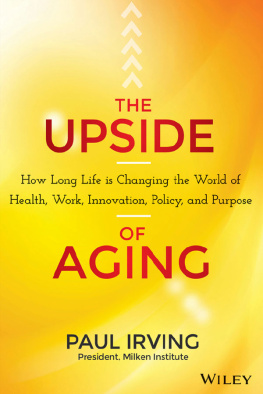
 TM The paper used in this publication meets the minimum requirements of American National Standard for Information Sciences Permanence of Paper for Printed Library Materials, ANSI/NISO Z39.48-1992.
TM The paper used in this publication meets the minimum requirements of American National Standard for Information Sciences Permanence of Paper for Printed Library Materials, ANSI/NISO Z39.48-1992.